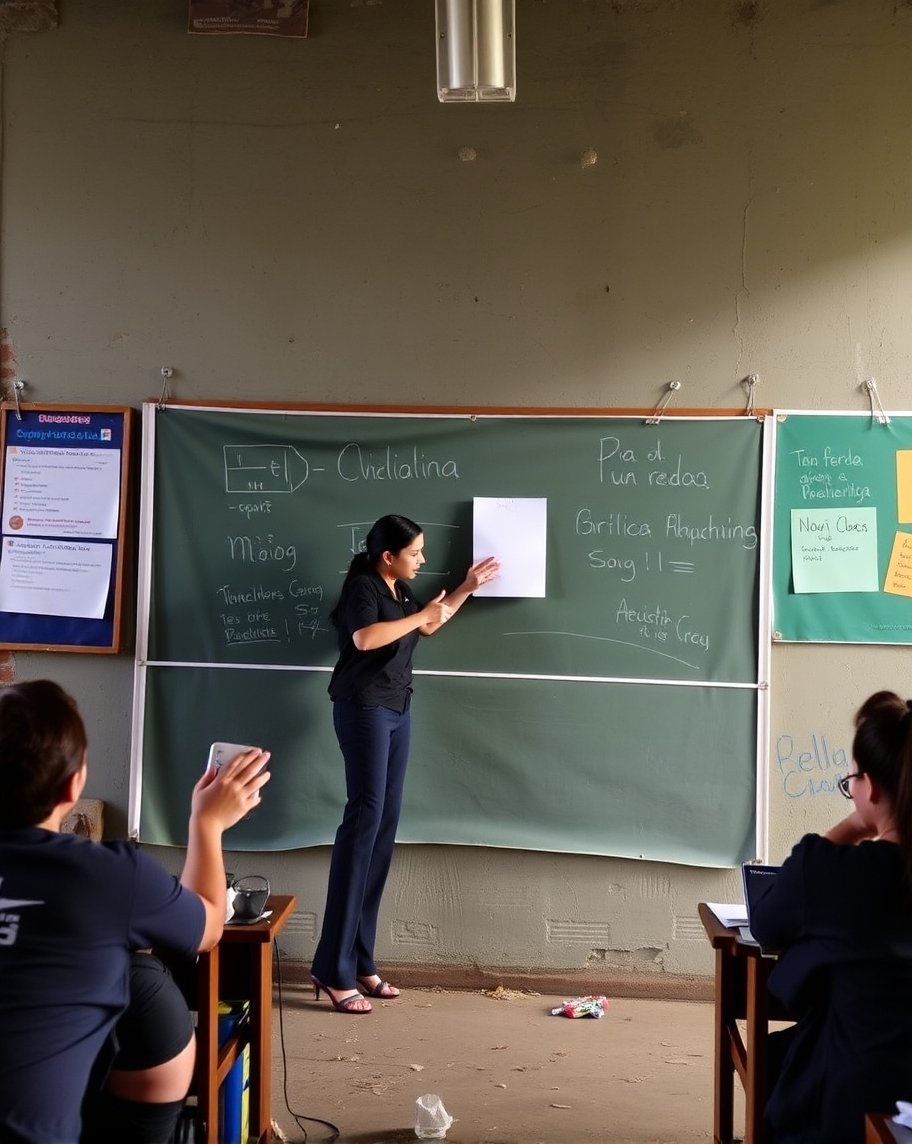Education plays a critical role in shaping societies and fostering innovation, and in Argentina, institutions like Uncuymaza have been at the forefront of academic excellence. Uncuymaza, formally known as Universidad Nacional de Cuyo, is one of Argentina’s premier public universities. With a rich history and a focus on academic rigor, research, and social development, Uncuymaza has contributed significantly to various fields of study and the overall development of Argentina’s education sector. In this article, we will explore the significance of Uncuymaza, the role it plays in higher education, and how it impacts the lives of students and the broader community.
Detailed Explanation of Uncuymaza
What is Uncuymaza?
Uncuymaza, or Universidad Nacional de Cuyo (National University of Cuyo), was founded in 1939 and is one of the largest and most prestigious universities in Argentina. Situated in the province of Mendoza, Uncuymaza offers a wide range of undergraduate and postgraduate programs across various disciplines, including science, technology, humanities, and social sciences.
As a public university, Uncuymaza is dedicated to providing accessible, high-quality education to students from diverse backgrounds. It plays an essential role in the Argentine education system, offering not only traditional degrees but also fostering research and community-oriented projects.
The Importance of Public Universities in Argentina
Public universities like Uncuymaza are integral to Argentina’s education model, as they provide tuition-free education to both local and international students. This is part of Argentina’s commitment to making higher education accessible to all, regardless of socioeconomic background. These universities serve as platforms for intellectual growth and social mobility.
Uncuymaza specifically is known for its emphasis on research and development. It encourages its students to engage in cutting-edge research across fields such as environmental studies, engineering, medicine, and more. This focus on innovation helps Argentina maintain a competitive edge in various global industries.
Importance and Benefits of Uncuymaza
Accessibility and Inclusivity
One of the major benefits of Uncuymaza is its accessibility. Argentina’s public universities do not charge tuition fees, making higher education attainable for students who may not have the financial means to afford private institutions. This inclusivity has helped Argentina build a highly educated workforce, which has driven economic development.
High-Quality Education and Research
Uncuymaza is renowned for providing high-quality education. Its faculty includes leading experts in various fields, and the university invests heavily in research and development. Students at Uncuymaza benefit from access to state-of-the-art facilities, research opportunities, and international collaborations. The university is also part of numerous academic exchange programs, enabling students to gain global perspectives through study abroad experiences.
Contribution to Regional Development
Mendoza, where Uncuymaza is located, is one of Argentina’s most important provinces, both economically and culturally. The university plays a vital role in the development of the region by producing highly skilled graduates who contribute to the local economy. Moreover, Uncuymaza’s focus on research helps address regional challenges, such as environmental sustainability and agricultural innovation, benefiting both the local community and the nation.
Real-World Applications of Uncuymaza’s Research
Research at Uncuymaza extends beyond theoretical knowledge; it has practical applications that contribute to societal development. For instance, its research in agricultural sciences helps improve wine production in Mendoza, a region globally recognized for its wine industry. Similarly, its medical and technological research has led to innovations that impact public health and industrial growth.
Applications and Use Cases
Case Study: Uncuymaza and Mendoza’s Wine Industry
Mendoza is renowned for its world-class wine, and Uncuymaza plays a key role in supporting this industry. The university’s agricultural science programs focus heavily on viticulture and enology, offering specialized knowledge and research that improve wine production techniques. By fostering innovation in grape cultivation and wine production, Uncuymaza has helped Mendoza maintain its status as one of the top wine-producing regions in the world.
Use Case: Sustainable Development Research
Uncuymaza also excels in environmental and sustainability research. Argentina faces significant challenges related to climate change, and researchers at Uncuymaza are actively working on solutions to address these issues. Through various projects, the university explores renewable energy sources, sustainable agricultural practices, and methods to conserve biodiversity. The work done by Uncuymaza researchers contributes directly to shaping environmental policies in Argentina and globally.
Uncuymaza’s Role in Healthcare Advancements
The university’s medical programs and research initiatives contribute significantly to healthcare in Argentina. Uncuymaza is involved in medical research, particularly in fields such as oncology, infectious diseases, and public health. Graduates from Uncuymaza’s medical school are often at the forefront of healthcare delivery, research, and policy development in Argentina.
Challenges and Solutions
Challenges Faced by Uncuymaza and Other Public Universities
Despite its many advantages, Uncuymaza faces challenges typical of public universities, especially those in developing countries. Some of these include:
- Funding Constraints: As a public institution, Uncuymaza relies on government funding. Budgetary restrictions can limit resources, affecting infrastructure and research capabilities.
- Infrastructure Maintenance: Ensuring modern infrastructure and technological advancements is an ongoing challenge for public universities, especially those that are tuition-free.
- Global Competitiveness: While Uncuymaza excels in many areas, competing with well-funded private and international institutions remains a challenge, particularly in research and development.
Solutions for Overcoming These Challenges
- International Collaborations: By engaging in international partnerships, Uncuymaz can enhance its research capabilities, infrastructure, and global presence. These collaborations allow the exchange of knowledge and resources, helping the university overcome funding limitations.
- Alumni and Corporate Support: Encouraging alumni engagement and seeking private-sector partnerships can help secure additional funding for research and facilities development. Many universities worldwide successfully integrate corporate sponsorships and donations to supplement government funding.
- Digital Transformation: Incorporating more digital and online learning tools can help Uncuymaz modernize its infrastructure. By investing in virtual classrooms and online research databases, the university can enhance the learning experience for both local and international students.
Conclusion
Uncuymaza stands as a beacon of education, research, and social development in Argentina. Its commitment to providing accessible, high-quality education has helped shape the country’s intellectual landscape and contributed significantly to regional development. Through its research initiatives, Uncuymaza addresses some of the most pressing challenges faced by Argentina, including environmental sustainability, healthcare, and agricultural innovation.
By overcoming challenges such as funding limitations and maintaining competitiveness in the global academic arena, Continues to thrive and make significant contributions to both national and international education. As it evolves, the university remains a vital institution for shaping the future of Argentina’s academic and research landscapes.




